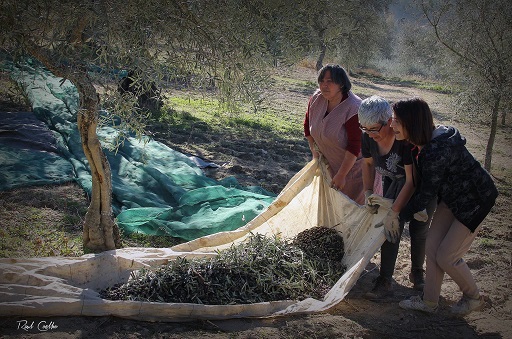When going to the supermarket these days, do you notice that the aisle shoppers spend more time in is the one where you select the olive oil? Since COVID and the beginning of the Ukraine war, the price just skyrocketed, and it will stay as expensive as it has become.
Portugal is a significant producer of olive oil, known for its high-quality olive oil products. The country has a long tradition of olive cultivation and oil production, with olive groves covering a substantial portion of the agricultural landscape. Here are some key points about olive oil production in Portugal:
- Olive Varieties: Portugal is home to several indigenous olive varieties, including Galega, Cordovil, Verdeal, and Cobrançosa, among others. These varieties are well-suited to the country’s climate and soil conditions, contributing to the diversity and quality of Portuguese olive oil.
- Geographic Distribution: Olive cultivation and oil production are widespread throughout Portugal, with notable production regions including the Alentejo, Trás-os-Montes, and Ribatejo. The Alentejo region, in particular, is renowned for its olive oil production and is home to a significant portion of the country’s olive groves.
- Production Methods: Portuguese olive oil production often emphasizes traditional and sustainable methods, including hand-picking olives and cold-pressing techniques. These methods help preserve the flavor and nutritional qualities of the oil, contributing to its high quality.
- Quality Standards: Portugal’s olive oil industry adheres to strict quality standards, with many producers focusing on producing extra virgin olive oil, which is the highest grade and is prized for its superior taste and health benefits.
- Economic Importance: Olive oil production is economically significant for Portugal, contributing to the country’s agricultural sector and export industry. Portuguese olive oil is exported to various international markets, and it is also enjoyed domestically as a staple ingredient in Portuguese cuisine.
- International Recognition: Portuguese olive oil has received numerous accolades and awards at international competitions, further enhancing its reputation for quality and flavor.
Overall, olive oil production plays a vital role in Portugal’s agricultural and culinary heritage, and the country continues to be a respected producer of high-quality olive oil on the global stage.
How to identify extra virgin olive oil
Extra virgin olive oil is so called because it contains a number of phenolic compounds.
In our bodies, these compounds carry out various processes that help reduce inflammation, protect against Alzheimer’s, type 2 diabetes and much more.
One of the ways to identify whether olive oil is extra virgin is to pay attention to sensory notes such as the degree of pungency and bitterness.
“It’s not a chemical collection, but a home perception that you’re looking at a quality product.”
In addition, the aroma of this quality of oil is more refined than traditional virgin olive oil.
Related article: Young man receives bottles of olive oil as a gift from grandparents
Related article: Olive oil is in ASAE’s sights
Related article: Olive oil, one of the first products exported by Portugal.

